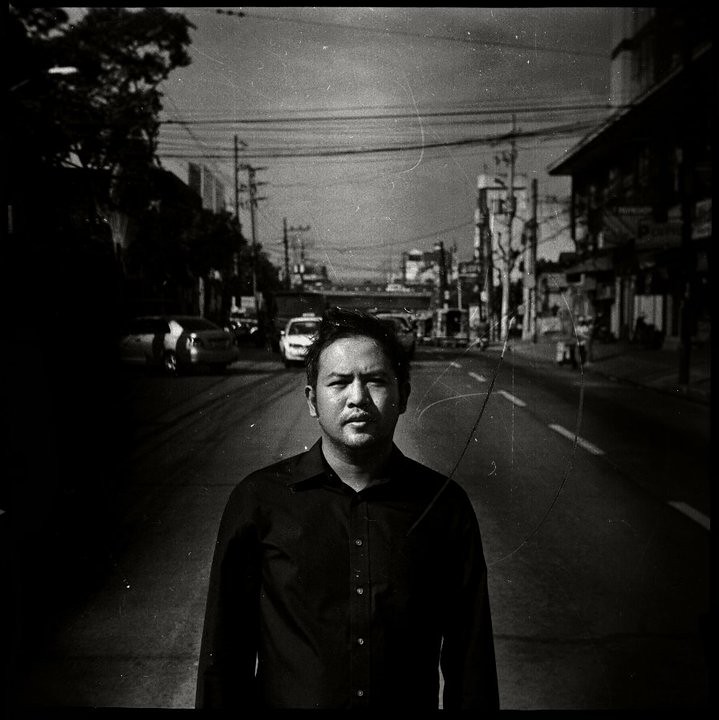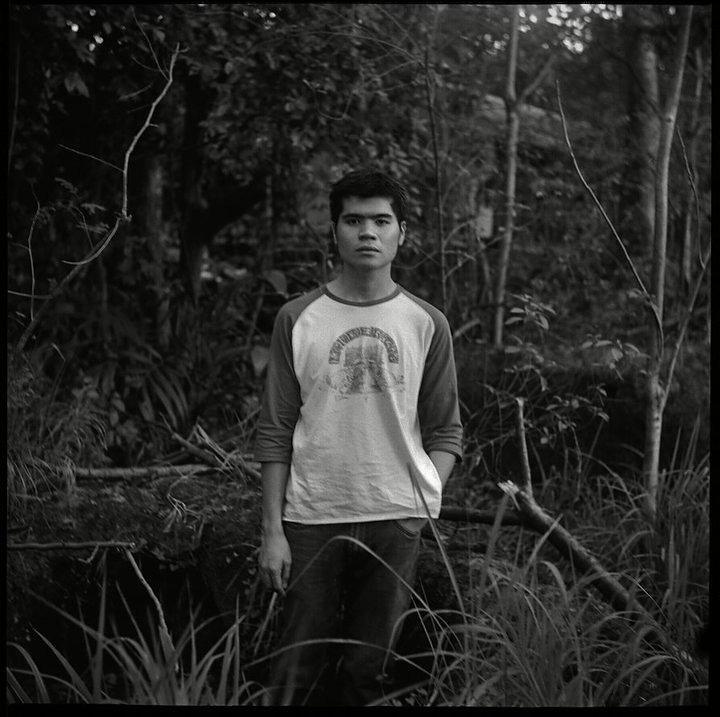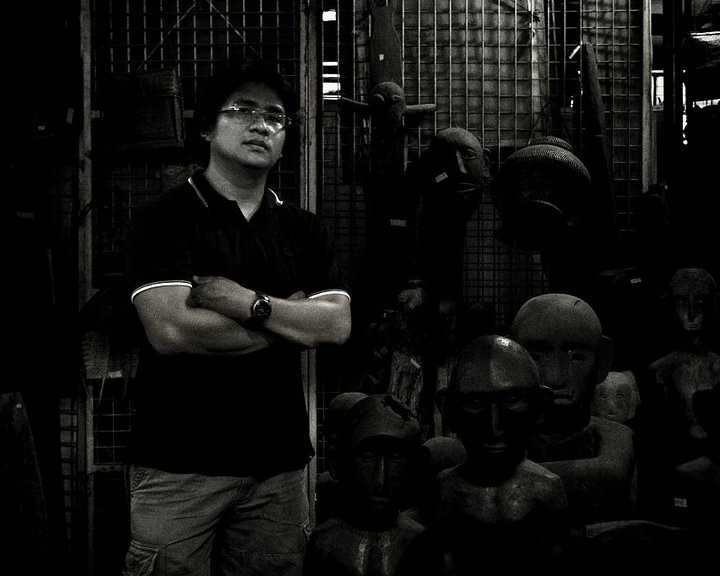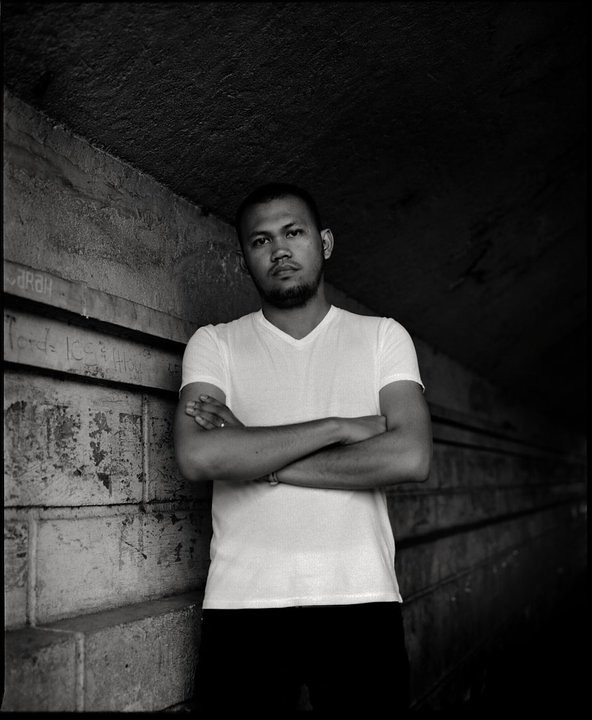[Book launching will be held at CCP on July 14, 2010 during Cinemalaya 6.]

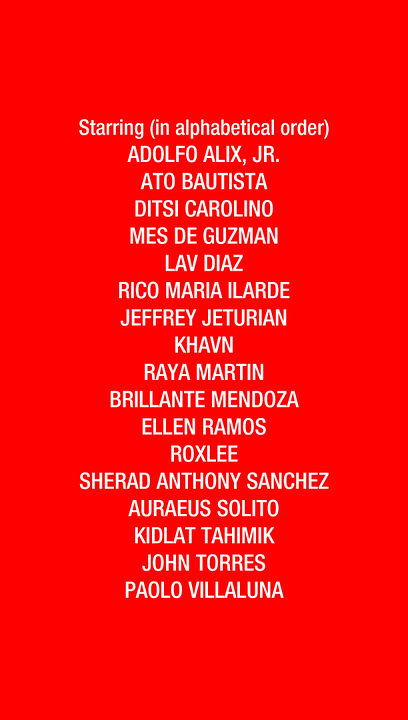
I'm proud to be a part of this film culture! This is Philippine Digital Cinema in its quest to redefine its boundaries, history, and territory in a vast, multiformic art film history.


I'm proud to be a part of this film culture! This is Philippine Digital Cinema in its quest to redefine its boundaries, history, and territory in a vast, multiformic art film history.
PHILIPPINE NEW WAVE: This Is Not A Film Movement[Edited by Khavn De La Cruz with Dodo Dayao & Mabie AlagbateThe most prominent internationally-acclaimed and wildly divergent digital filmmakers from the Philippines answer questions on filmmaking and beyond: from humble beginnings, to first adventures and unforgettable experiences, to influences and philosophy and process, to what the power of film is, to the true meaning of independence, to what the future holds for cinema, locally and worldwide.
Introduction by Bienvenido Lumbera
Profiles by Chard Bolisay, Oggs Cruz, & Dodo Dayao
Published by Noel Ferrer, Instamatic Writings, & MovFest
Book Design & Layout by Gerard Lico]
Filmmaker and festival director Khavn De La Cruz throws the questions at them, and gamely answers them himself. The results are at turns informative and insightful, inspirational and illuminating, revealing how diverse the landscape of Philippine Cinema has become, and how much of it is a shared love and a shared art in which you are complicit in.
"I just need to say THANK YOU for making this! It's a major read for me as we share similar cinematic visions (and among others, political instability). Your book is gold."
- Apichatpong Weerasethakul
“Not quite formal interview, not quite Internet quiz, not quite cinema textbook, not quite oral history. Filmmaker/publisher/interviewee Khavn De La Cruz again creates the unclassifiable: a status check on the point men, advance guard (avant-garde, if you will), adventurers of Philippine cinema, what they are, what they love, what they hate, where they've been, where they're going, what they want to conquer and change. If you need to see what's happening and what's next in Philippine culture, if you need to see where we as Filipinos are going, then this is an indispensable book.”
- Noel Vera (Author, “Critic After Dark”)
“When I was planning for the first time in my life to go to the Philippines, a friend—a Filipino-American woman at that—said I should not go. 'You will be kidnapped,' she said. 'You are as white as they come.' She was right. I was kidnapped by a group of lively, talented, original, daring, and unstoppable filmmakers who made me a part of their cinematic journey that conquered the international film world in recent years. The only sad thing is that I was not born a Filipino.”
- Gertjan Zuilhof (International Film Festival Rotterdam)
“A more than timely tome: 17 Pinoy masters of digital cinema talk candidly and passionately, at length and in depth, about cinema, work & art, life, God (well…) and the nation (an unavoidable one), plus everything else that matters and is fit to print (and then some). The selection of directors featured is carefully considered: they come from several generations with very different experiences, covering a spectrum between more commercially minded auteurs, committed activists, all-out underground mavericks and experimentation-prone artists, with some names probably still new to viewers/readers outside the Philippines. If one wants to understand why and how the Philippines developed into the last decade’s one and only hot-bed of talents and visionary then one simply has to read this.”
- Olaf Moeller (European Editor, Film Comment)
"Filipino cinema continues to be an inspiration to me!"
- Amir Muhammad (Matahari Books | Da Huang Pictures)
"It may be easier to proclaim than to start a revolution. But for the digital cinema of the Philippines, nothing could have been easier. The revolution began the moment it was proclaimed and 10 years later, the times are still a’ changing."
- Philip Cheah (Singapore International Film Festival | Locarno International Film Festival)
“The digital revolution happening in the Philippines in the past decade extends beyond the works created. This book captures the spirit of film activism at its best where the film community actively reaches out to find their audience. How can anyone not be moved by this invitation to be part of a great revolution?”
- Bee Thiam (Asian Film Archive)
"Filipino digital cinema has marked the last decade as no other development in national cinemas worldwide, providing great excitement and inspiration to all the film lovers who could discover it. This book helps us understand how the Filipino digital new wave came about, lets us know the people who contributed to its ascent, and gives us hints on where it may possibly head. All directly from the inside."
- Paolo Bertolin (Venice International Film Festival)
"Here we have 16 filmmakers—these punk poets, monsoon-drenched desperadoes, romantic dogs—talking to their own tribal chief about the slaughterhouse of being independent, being misunderstood, and being Filipino. They confirm and bust the myths about their so-called attempts to pick the lock into the pantheon of 21st century global cinema, and they supply valuable perspectives about the forgotten past and the possible future of Pinoy cinema, their soft nest and their elevator to heaven or maybe to the gallows."
- Kong Rithdee (Bangkok Post)
“Emerging from a context of economic and political violence, as sadly evidenced by the murder of Alexis Tioseco and Nika Bohinc or—as I'm writing these lines—the establishment of “martial law,” during the past ten years, Philippine Cinema has become powerful, fertile, inventive and radical. Exceptional phenomenon in history—for once cinema is not born from the will of a State or an industry, but from the energy of fiercely free young filmmakers. This indispensable book, edited by the great 'social-realist insurgent’ Khavn De La Cruz, recounts their struggle.”
- Nicole Brenez (University Paris 1 Panthéon-Sorbonne | Cinémathèque Française)
“The Philippines’ “digital underground” is one of the most vibrant, essential and utterly diverse film scenes in the world today, with artists so unique they could each be their own “new waves.” Their aesthetics are as different from one another as they are from the rest of world cinema, but all are united by a shared willingness to break the boundaries of film genre—and filmmaking. Featuring game-changing veterans like Kidlat Tahimik and Lav Diaz to young turks like Raya Martin and John Torres, these interviews provide an invaluable insight into the Philippines’ digital revolution, why it’s happening, and—even more importantly—how to make it happen anywhere. Why should you care? Because these filmmakers are changing how we look at movies, and—more importantly—how we should be creating them: with total freedom from budgets, limits, and rules.”
- Jason Sanders (Filmmaker Magazine | Pacific Film Archive)
“For people who care passionately about an art form, there is always the danger of stopping at a certain historical point and saying, "It's all over, let's think only about the past." Maybe they're tired of the effort of staying contemporary, maybe they've lost the capacity to respond to new ways of perceiving and thinking about their art form, or maybe the potential for their art form to produce important work seems to them to have run out. As far as cinema is concerned, Khavn De La Cruz's anthology offers a powerful rebuke to such defeatism. The book documents the richness of a national film movement, one of the most vigorous and accomplished on the contemporary film scene, that shows no signs of imminent exhaustion. Even if you have never seen any work by the filmmakers represented, if you care about the future of cinema you should read this book.”
- Chris Fujiwara (Editor, “Jerry Lewis” | “The Little Black Book: Movies”)
“In the past decade, digital filmmaking has enabled a talented new crop of Filipino filmmakers to gain worldwide acclaim and acceptance through film festivals at home and abroad. What distinguishes their work from the new cinema movements in other places is the awareness of their own country’s cinematic legacy: the sociopolitical concerns prominent in the works by Mike de Leon, Ishmael Bernal and Lino Brocka. However, history has shown that every “new wave” floods and ebbs. As such, the continuation of current successes will depend on whether this generation’s talents can communicate their vision to an audience beyond those within festival circuits. Luckily, the pragmatism and resilience shown by these artists (not to mention budget constraints) are evidences of their ability to adapt and evolve cinematically. The 2000s, then, could mark just the beginning in the current evolution of the new Filipino cinema.”
- Raymond Phathanavirangoon (Hong Kong International Film Festival)
"There should be a Mad Dogs and Englishmen-style ‘rock tour’ documentary made about the contemporary film festival circuit equivalent of Joe Cocker and his travelling troupe: I mean that close-knit band of contemporary Philippine filmmakers who have burst upon the cinephile world in recent years. In the minds of many, this newest of national ‘new cinemas’ is exemplified by the long, minimalist, demanding films of 'the elder' Lav Diaz; the highly ironic and deliberately artificial 'history films' of young Raya Martin; or, even younger, the lyrical avant-garde visions of Sherad Anthony Sanchez. But there is still more variety in this Philippine New Wave, from the humanist neo-realism of Adolfo Alix, Jr. to the crazy digital-video-with-live-music 'happenings' of Khavn De La Cruz. And there is a past to this independent movement, important precedents that we are only just coming to know outside the Philippines. Political, urgent, experimental, impulsive, risk-taking, challenging audiences and demanding recognition: this is what the Philippine New Wave is all about. And these mad dogs sure know how to party, too."
- Adrian Martin (Co-Editor, “Movie Mutations” | Rouge Film Journal)
---------------
Ciao!***
Please repost this to your blogs! Spread the word! Buy the book!
***

